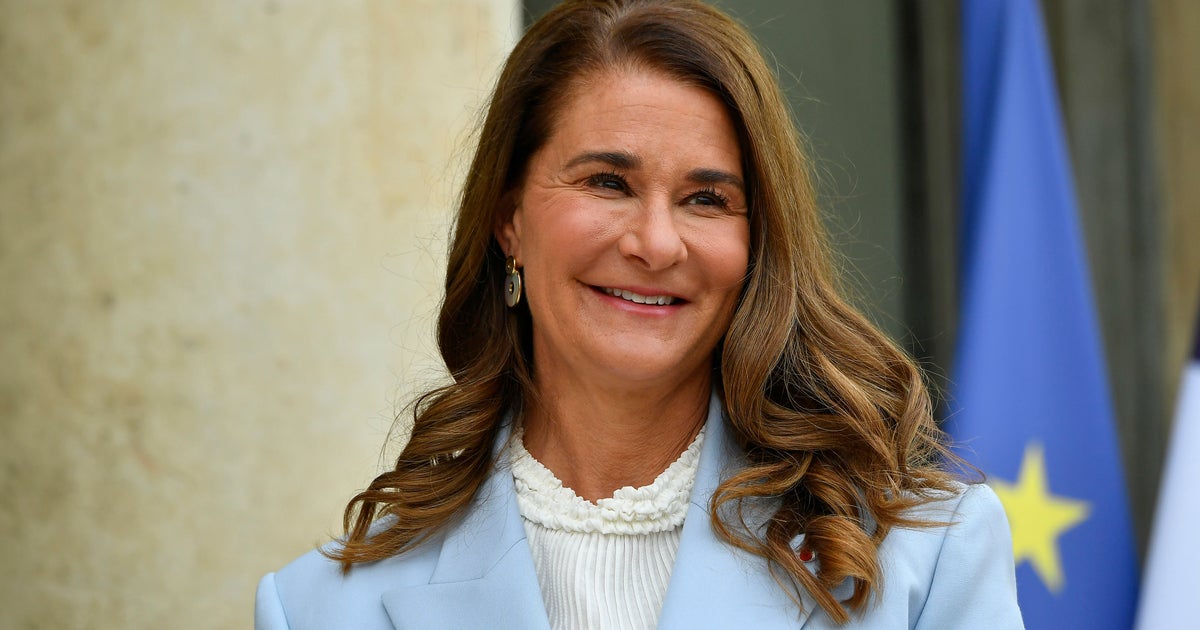Planned Parenthood president says people will go "extreme" lengths to "criminalize women"
Washington, D.C. — At one of the most critical moments for abortion access in nearly 50 years, Planned Parenthood's new leader Alexis McGill Johnson says the organization doesn't have the luxury of deciding whether the organization is a health care clinic or advocacy group. They've been forced to be both.
"It's a false choice," Johnson told CBS News in her first interview since being named acting president and chief executive officer of Planned Parenthood Federation of America and the Planned Parenthood Action Fund.
"We are primarily a health care provider. We provide access to sexual and reproductive health, in some cases primary care. We're not political by nature but we've been politicized, and that fight has actually been our focus — to ensure that our health centers stay open."
Johnson's new role at Planned Parenthood comes at one of the least secure moments for abortion access since Roe v. Wade effectively legalized the procedure in 1973. State lawmakers have introduced more than 300 pieces of legislation restricting access to abortion, more than in any other year, according to data compiled by the Guttmacher Institute, a pro-abortion rights research group.
Many of those bills contain language directly in conflict with Supreme Court precedent, intended to challenge and potentially dismantle federal abortion protections.
"We are very concerned about Roe," Johnson said. "We have a court that hangs in the balance."
But Johnson said she's up for the challenge. Barely two weeks into her role, Planned Parenthood on Tuesday announced a lawsuit against Missouri's controversial eight-week abortion ban. The complaint, filed Tuesday evening, means every one of the so-called "heartbeat" bans passed in various states is now in the hands of the courts.
"It's a big moment," Johnson said. "We think it's critical to stop these bills, stop these bans against a women's ability to get access to an abortion."
In the first six months of 2019, six states passed so-called "heartbeat" bans, laws that prohibit abortion after a fetal heartbeat is detected, something that typically happens around five or six weeks into a woman's pregnancy. Alabama went a step further, passing a law that bans the procedure outright. Federal judges have granted preliminary injunctions on nearly all of those bills and none have been implemented so far.
"The lengths that people will go to criminalize women and their choices is extreme," Johnson said. "There is significant extreme rhetoric that is guiding many of these bills and I have deep concerns about how the rhetoric impacts and shames women for making these choices."
Johnson said she doesn't think health care decisions like abortion should be decided by the government.
"I do believe that the government's role in this is minimal if non-existent, and these decisions, for a woman to be able to make them, it's critical for her to be able to have to have the folks that she chooses around to make them with her," Johnson said. "I think the question is really about whether the government should be involved in these decisions, or if a woman has a right to make these decisions with her God and her doctor."
As access to abortion has been under fire this year, so has funding. A rule change to Title X — the federal program that funds birth control and reproductive health services for low-income women — has forced recipients to stop referring to abortion, an order that abortion rights advocates have called a "gag rule." Planned Parenthood, a major recipient of those funds, has said it would no longer participate in the program, putting millions of dollars in jeopardy.
"I'm not concerned about our finances; I'm concerned about our patients," Johnson said. "We have been working with our partners and with our funders and supporters to address some of the resources. We will have some funds to help our affiliates navigate through this."
The Hyde Amendment, which prohibits the use of federal money for abortion services, is something Johnson thinks should be changed.
"I do think that when you look at the broad spectrum of health care and you locate abortion as one of the procedures that is common among women, then yes, I do think tax dollars should support the broad range of health care," Johnson said.
Watch CBS News' full interview with Johnson below.



